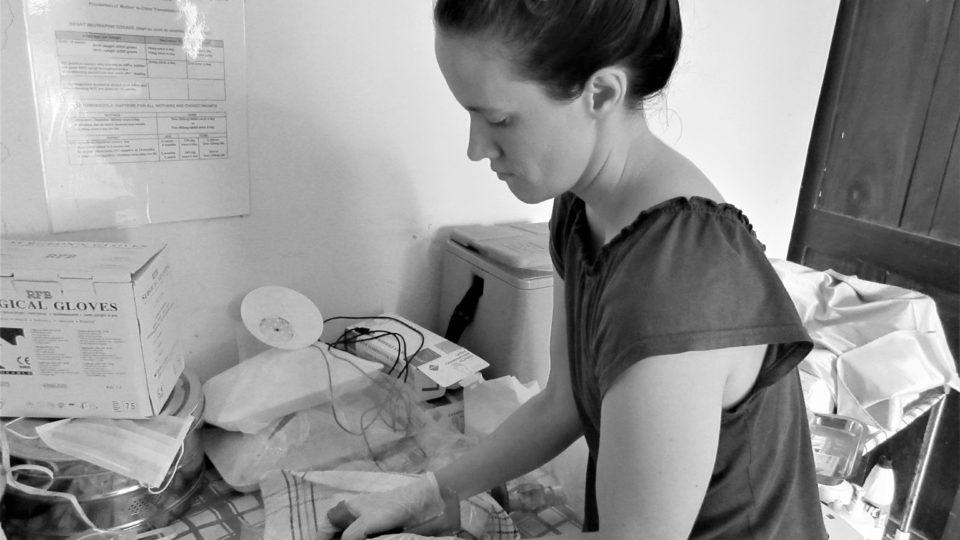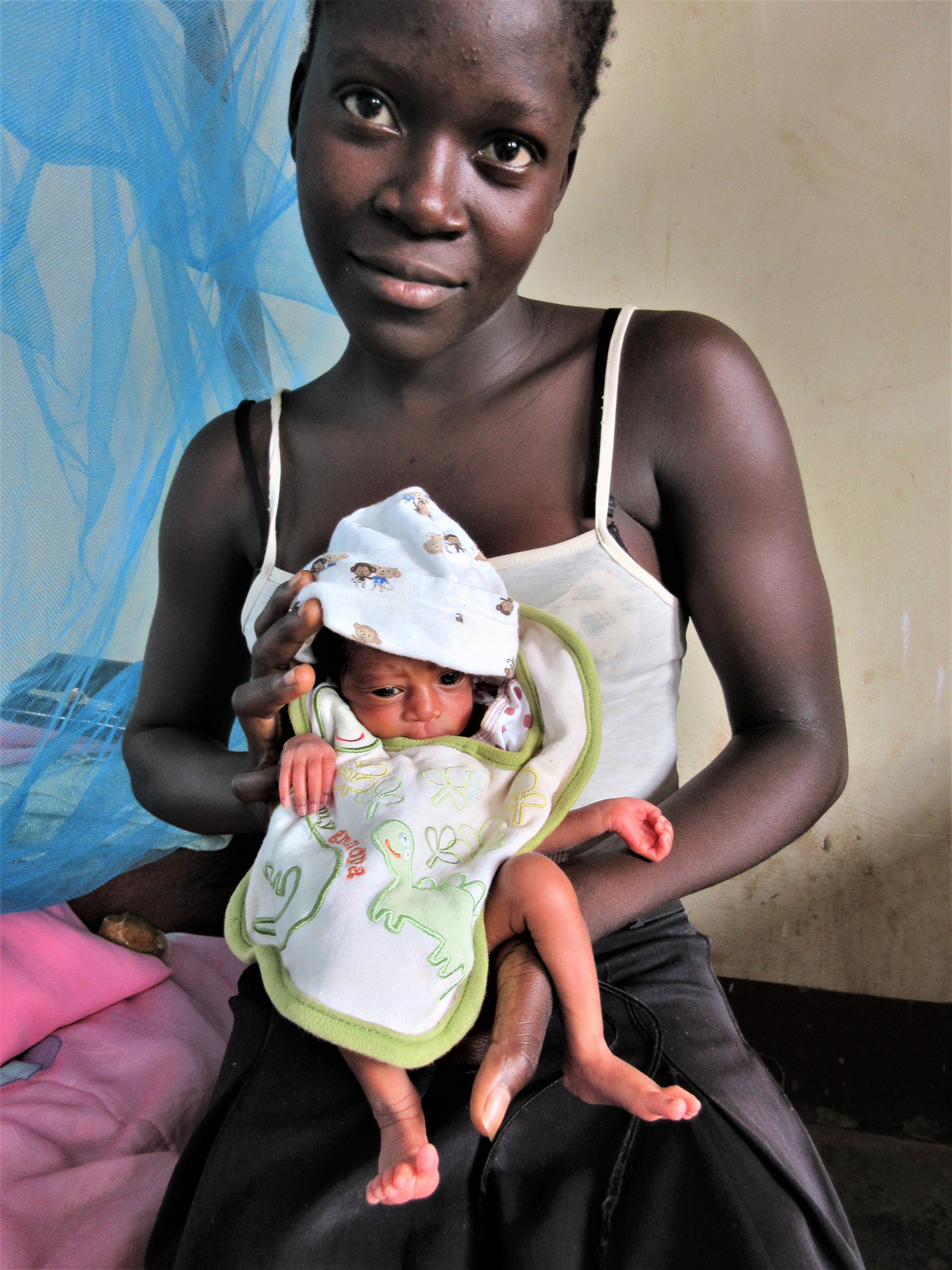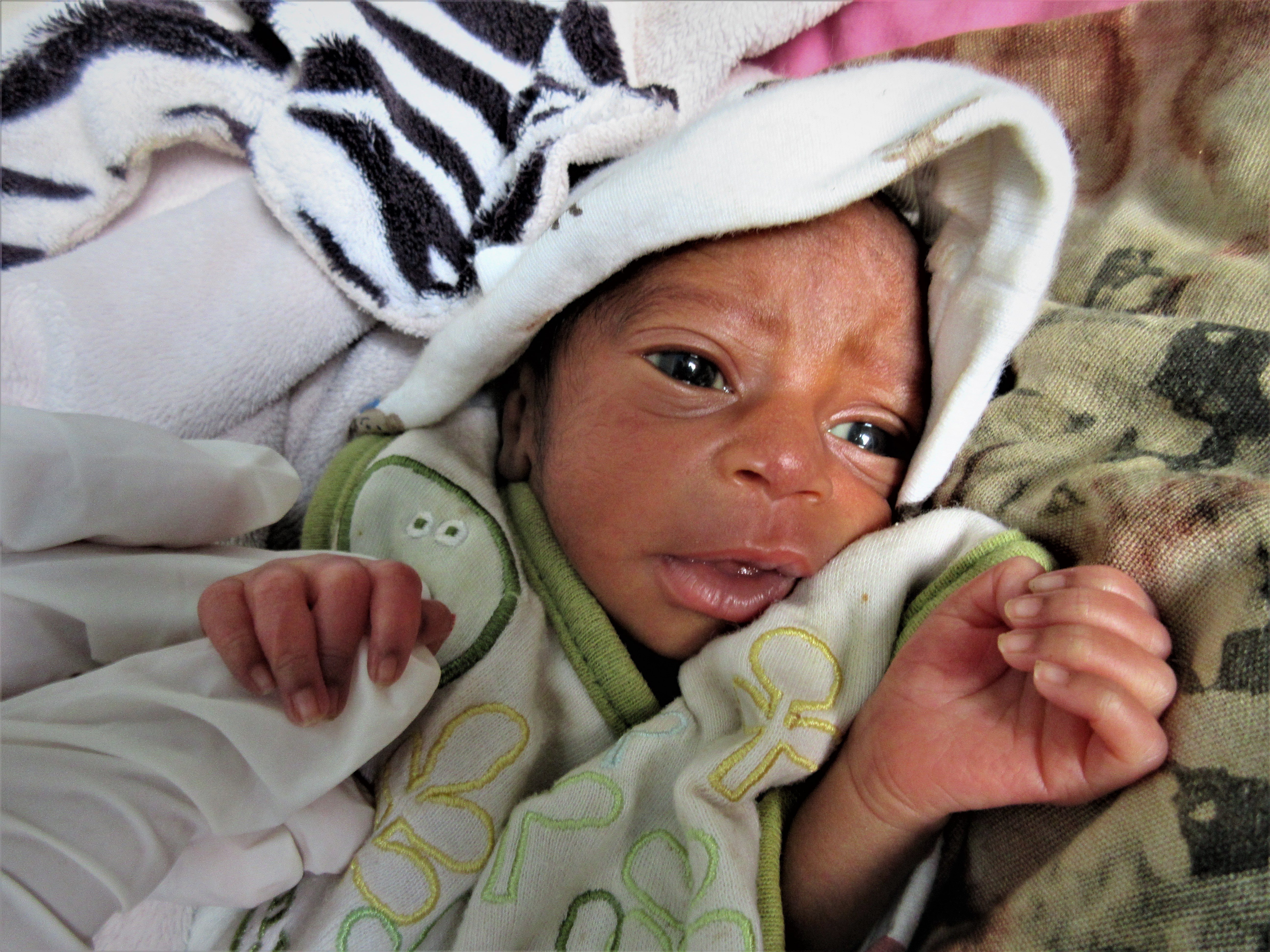Simple Items Saving Lives: A Kitting Event for South Sudan

Sarah Rubino is a nurse midwife who volunteered in Nzara, South Sudan last year. She will be returning to South Sudan in 2020 for two mission trips, joined by her husband, Martin, and her son, Max. In this article, Sarah reflects on her experience creating kits for newborns and mothers and just how important they are.
Sometimes the weather can determine if a baby lives beyond 24 hours after birth.
That is the reality when a mother delivers her baby in Nzara, South Sudan. A reality that my Western medically-trained mind took a long time to come to terms with. For almost a year, I worked as a nurse-midwife in South Sudan.
Violence and unsafe road conditions during the war would affect travel and interfere with supply trucks, creating stress on the supplies we had on hand.
When I first started delivering babies in Nzara, I was disheartened at the lack of resources I was accustomed to and the shortages we would suffer. Supplies were scarce, and I feared for how little the mothers had for themselves and their babies after delivery. Having basic supplies means the difference between life and death for these newborn babies.

CMMB staff, Sarah, and Max at the kitting event!
That is why participating in CMMB’s first kitting event with my son Max was so important to me. CMMB employees, volunteers, and I came together to put organized birth kits for mothers and babies in South Sudan. These kits provide simple yet vital and lifesaving items that help keep newborns and their mothers alive. As a new mother myself, I felt honored to take part in this occasion because I have seen firsthand the impact these kits will make to the community of Nzara.
Delivering Babies in South Sudan
Sometimes I would have to deliver babies only using the last sterile gloves we had, as well as cutting the babies’ umbilical cord with the last sterile razor blade. For postpartum pads, the mothers would bring scraps of fabric formerly used when they had their period. To help increase absorbency, we would have to roll these scraps up in whatever fluffy cotton the clinic could provide to make a makeshift pad.
For the babies, mothers would come with strips of fabric to wrap around their babies to create a diaper, and a larger scrap would be used as a blanket. Lucky mothers would have a hat or shirt for their newborns, but the clothing usually was sized to fit a one-year-old.

A premature baby born in Nzara during Sarah’s service
And then I experienced the heart wrenching fact of seeing babies die because of the weather. Babies use energy to learn to breathe and keep their bodies warm when transitioning from uterine life to the outside world. When it was a “cold” day outside (below 70 degrees), babies had to use a lot of their energy to keep themselves warm. When a baby would struggle to take breaths, whether it be from a difficult delivery, or the baby was premature, hypoglycemia (low blood sugar) could result.
And when a small baby was born on a cold day, they were at a great risk of severe hypoglycemia, leading to death. Regardless of some cloth and mothers trying skin-to-skin with their babies to try to keep their little bodies warm, small babies would die simply because they were born on a cold day with no means available to staff to keep them warm. Babies would struggle to keep warm during the day, and would die silently in the night, sometimes without the mothers knowing until they woke in the morning.

One of the babies Sarah delivered in Nzara
One particular week, we had several colder days in a row. Two premature babies were born during that week. When I started my rounds those two mornings, the mothers were smiling because they thought that their babies had survived. As I peeled back the blanket to check on the newborns, I found these precious babies had passed during the night. Anyone around the maternity building would have known the fate of these babies by hearing the mother’s cries piercing the morning air. Sadly, these tiny babies passed due to the fact that they were born during a cold week in a poverty-stricken community with little to no access to electricity or proper equipment to help keep them warm.
The Big Impact of a Small Gift
At CMMBs first kitting event, I couldn’t help but get choked up thinking about how many lives we were saving by putting together birth kits for these women. Items contained in these kits not only will help the mother through the early postpartum period by preventing infection and the spread of disease, it also will help the mother provide extra support to keep her newborn warm during the cold days in South Sudan. With these kits, mothers will be able to wake up in the morning and see that their infant had survived the night.